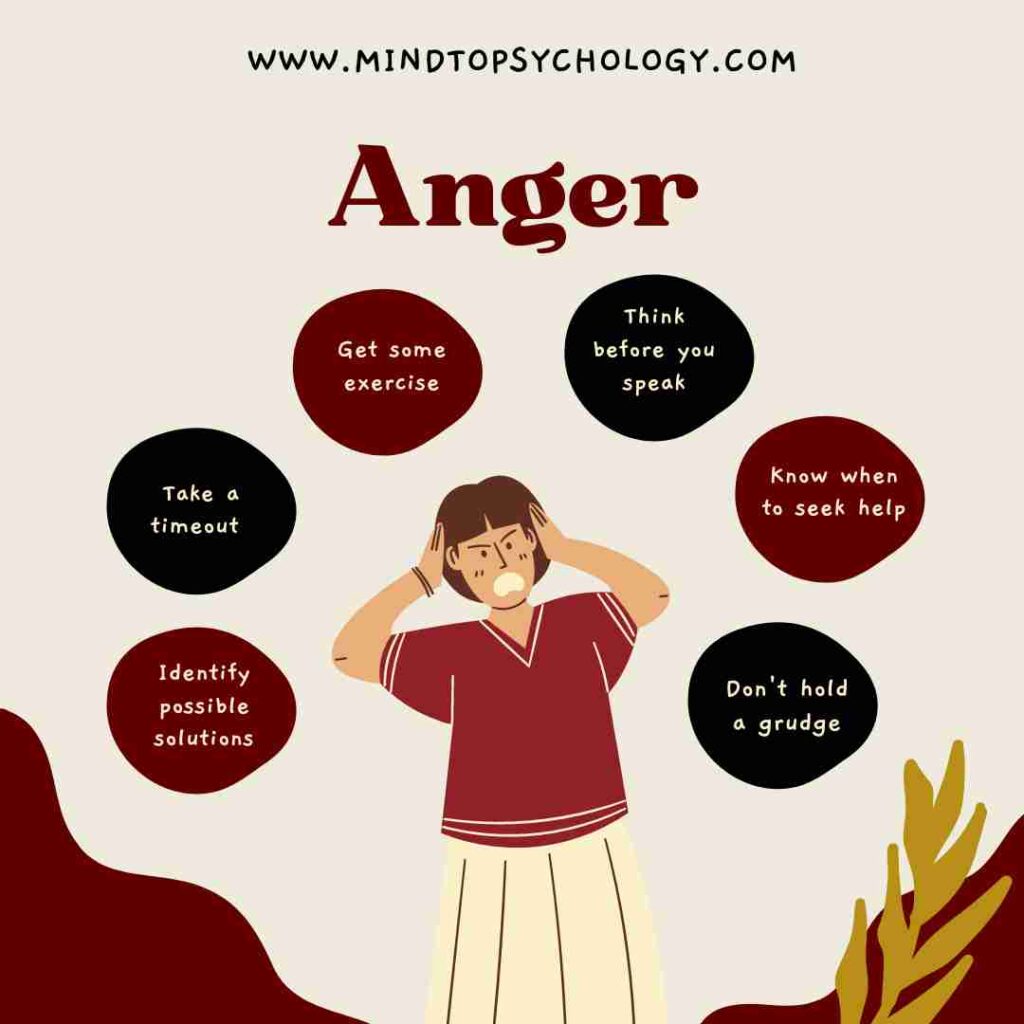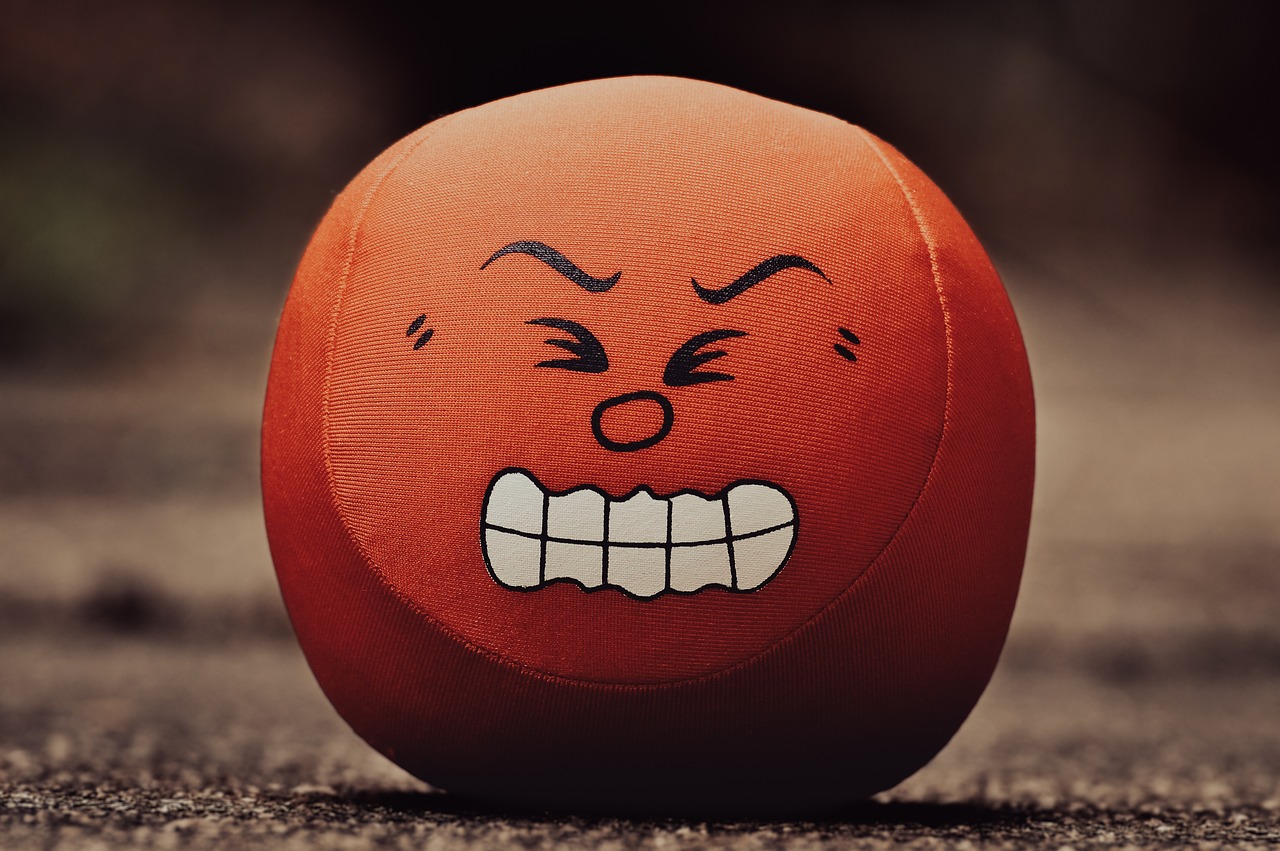To be mentally healthy it is essential to have control over anger. The uncontrolled rage can spoil our mental health; it can increase stress, create problems with surrounding people and even bring diseases. Learning of the right techniques of anger management can be very helpful in teaching resilience, making the communication better and learning new coping skills which will bring good mental health.
Deep Breathing: Make slow, deep inhaling and exhaling your tool to calm down the nervous system and waves of anger.
Counting to Ten: It as if through counting to ten you give yourself an opportunity to stop and take control of the current situation.
Physical Activity: Try out working out or physical activities which will release the accumulated pressure on you and stress.
Progressive Muscle Relaxation: Take a deep breathe in and out to calm down the muscle groups in your body to diminish anger.
Visualization: Let yourself hypnotize your mind with pictures of that place to find the tranquility and forget about the thing that stirred up your rage.
Journaling: Write down what you are feeling in that moment so that you can review it later and gain insight and perspective on when you feel anger coming on.

Mindfulness Meditation: Develop the skill of being present in the here and now by striving to observe and accept your feelings without any judgment.
Positive Self-Talk: Affirmations and positive talk are a good method to neutralize the negative thoughts and emotions that tend to creep in.
Seek Support: Ask your trusted friend, your close family member, or a therapist to help you overcome your anger.
Time-Out: Take a time-out from the moment to calm down and minimize the conflicts or the arguments.
Assertive Communication: When you’re angry, express your feelings and needs clearly, no yelling.
Humor: Incorporate humor into your set so as to take the tension out and relax the mood.
Empathy: Attempt to see others’ points-of-view, in which you can develop empathy as well as help reduce any anger.
Practice Gratitude: Take a step toward happiness and be grateful for things that you have left, this will help you to change your mind away from anger.
Creative Expression: Turn your ammage into an enemy and use your creativity to express your anger through painting, writing, or music.
Problem-Solving: Discover what is the source of your anger and make such techniques or strategies that could be useful.
Set Boundaries: Set up clear lines of separation, which should keep your emotional self in good shape and avoid the emergence of further conflicts.
Self-Care: Prioritize self-care activities like sleeping adequately, eating well, and participating in fun things like painting or reading fiction.
Limit Alcohol and Caffeine: Avoid those substances that irk you and lead to exaggerating your way out.
Cognitive Restructuring: Identify irrational thoughts and distorted beliefs that intensify anger.
Forgiveness: Educate yourself to forgive in this way you will not only let go of your resentment and anger but also theirs as well.
Time Management: Managing your effective time can surely help to reduce stress and prevent all kind of feelings overwhelm.
Conflict Resolution Skills: Acquire and practise the skills of settling conflicts peacefully and snugly.
Healthy Lifestyle Choices: Provide yourself with a balanced life with regular exercise, varied diet, and a good amount of sleep.
Anger Management Classes: Anger management classes or therapy sessions with a counselor may assist you in finding better approaches to cope with it.
Mindful Breathing: Your concentration should be on your breathing – inhaling through your nose deeply and exhaling slowly from your mouth.
Visualization Techniques: Paint a scene of your favorite calming place. With the details, use them to distract you from the screaming voice in your mind.
Progressive Relaxation: Beginning with your toes, work from the bottom up. Successively tense all muscle groups in your body then relax.
Grounding Techniques: Through your senses try to be mindful of the current moment by focusing, for instance, on the sensation of your feet on the ground or on the sound of your breathing.
Anger Diary: Maintain a diary to track your trigger situations, their effect on you and your coping styles in order to locate modes of improving yourself.




